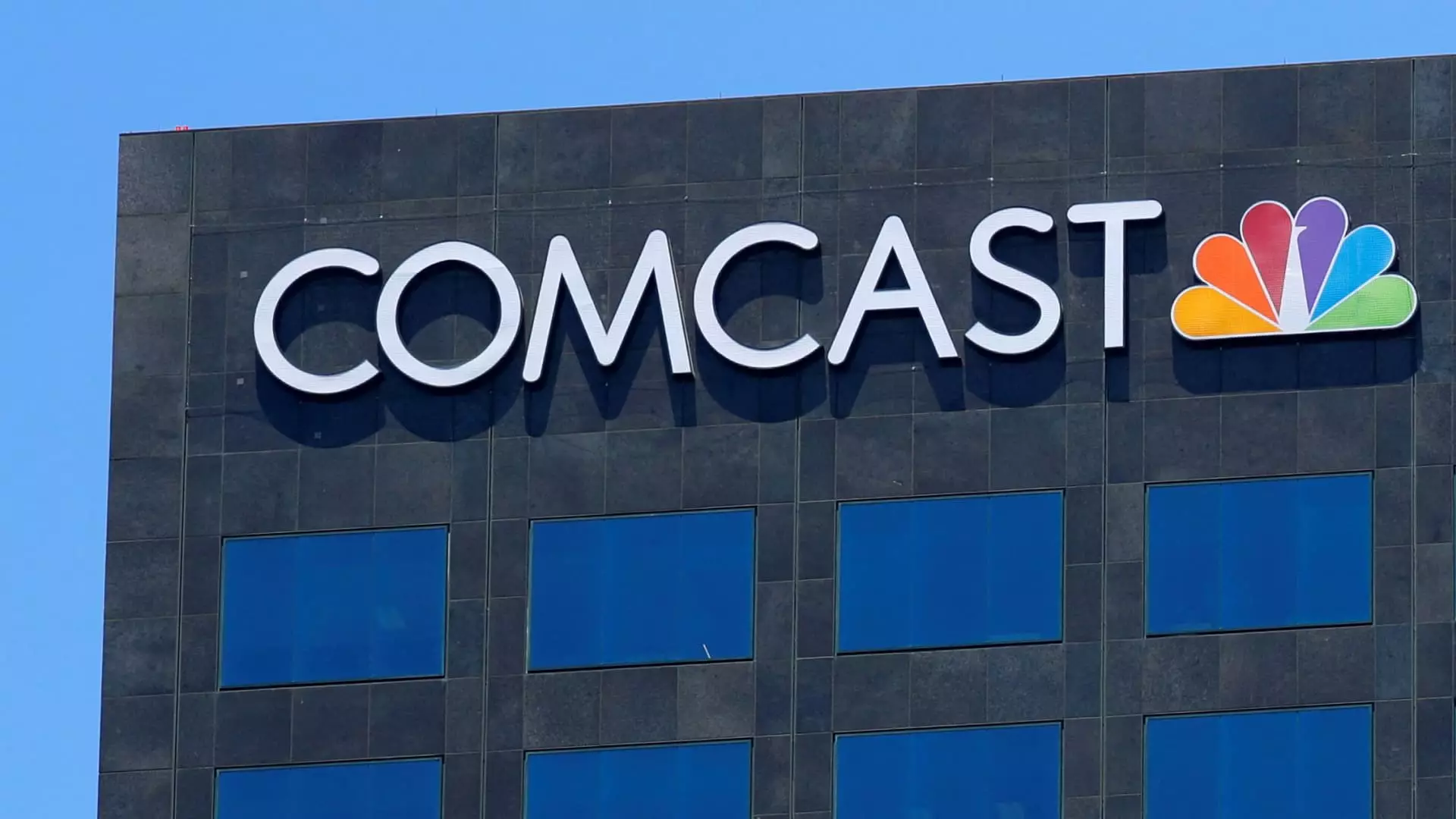Comcast’s impending spinoff of its cable channels marks a significant pivot in the landscape of media and entertainment. According to insider information disclosed to CNBC, the separation is projected to unfold over the coming year, with an announcement potentially set for as early as Wednesday. This strategic decision reflects Comcast’s response to the evolving dynamics of the industry, where traditional cable subscriptions are being challenged by an increasing preference for streaming services.
Leadership Changes Paint a New Picture
The new entity formed from the spinoff will see Mark Lazarus, the current chairman of NBCUniversal’s media group, taking the helm. Alongside him, Anand Kini, the Chief Financial Officer of NBCUniversal, will assume the dual role of CFO and operating chief for the freshly minted organization. This seasoned leadership aims to steer the new company through the complexities of the media landscape while retaining a semblance of governance by Comcast’s Chairman and CEO, Brian Roberts, who will retain a voting position but step back from formal officer roles.
This restructuring also fosters a more diversified management team within NBCUniversal. Notably, Donna Langley, the chief content officer, ascends to chair NBCUniversal Entertainment and Studios, and Matt Strauss will oversee NBCUniversal Media Group, spearheading operations affecting sports, ad sales, and distribution. These leadership transitions signal a deliberate attempt by Comcast to ensure continuity in creative and operational directives as they pivot towards a more streaming-focused model.
The Impetus Behind the Spinoff: Adapting to Market Forces
The crucial impetus for Comcast’s spinoff stems from the ongoing trend of cord-cutting, where millions are abandoning traditional cable television for more flexible streaming options. This consumer shift compels industry players to rethink their business models, prompting Comcast to capitalize on its valuable cable networks. By spinning off these channels, Comcast aims to create a well-capitalized entity that will explore mergers, acquisitions, or even potential sales to private equity firms in a bid to enhance profitability and market reach.
The projected tax-free nature of the spinoff and the intention for share structures to mirror those of Comcast are also noteworthy. Such considerations not only alleviate financial burdens but also offer existing shareholders a tangible stake in the newly formed company. This framework caters to those looking for viable investment opportunities even in a challenged environment, ultimately fostering greater shareholder value and confidence.
Despite the challenges of cord-cutting, traditional TV networks continue to generate substantial revenue streams, with Comcast’s media segment reporting an impressive growth of nearly 37% to $8.23 billion in the third quarter, largely thanks to events like the Olympics. This could indicate that while the audience is diverging towards streaming platforms, the financial heft of established networks isn’t to be underestimated. Revenue growth, even without marquee events like the Summer Olympics, demonstrates the resilience of traditional cable frameworks.
Furthermore, the strategic decision to keep certain networks such as NBC and Peacock under Comcast’s umbrella further emphasizes the conglomerate’s commitment to its streaming strategy. By retaining Bravo, whose content is heavily integrated within Peacock, Comcast showcases its commitment to an integrated media approach, leveraging existing content libraries to attract a broader audience within the streaming domain.
The proposed spinoff is set to take approximately a year as Comcast navigates existing licensing agreements and continues deliberations on the operational synergies between CNBC, MSNBC, and NBC News. As negotiations unfold, the focus will remain on balancing relationships that benefit the overall operations and situate the spinoff for success against a backdrop of shifting consumer preferences.
As Comcast embarks on this journey to reshape its operational and ownership structures, industry observers will undoubtedly keep a close eye on these developments. The outcome of this spinoff not only holds potential for Comcast but may also serve as a predictive model for how legacy media firms adapt in a digitally dominated environment. The ability to innovate amidst change will ultimately determine the path forward for Comcast and its vast portfolio of media assets.

